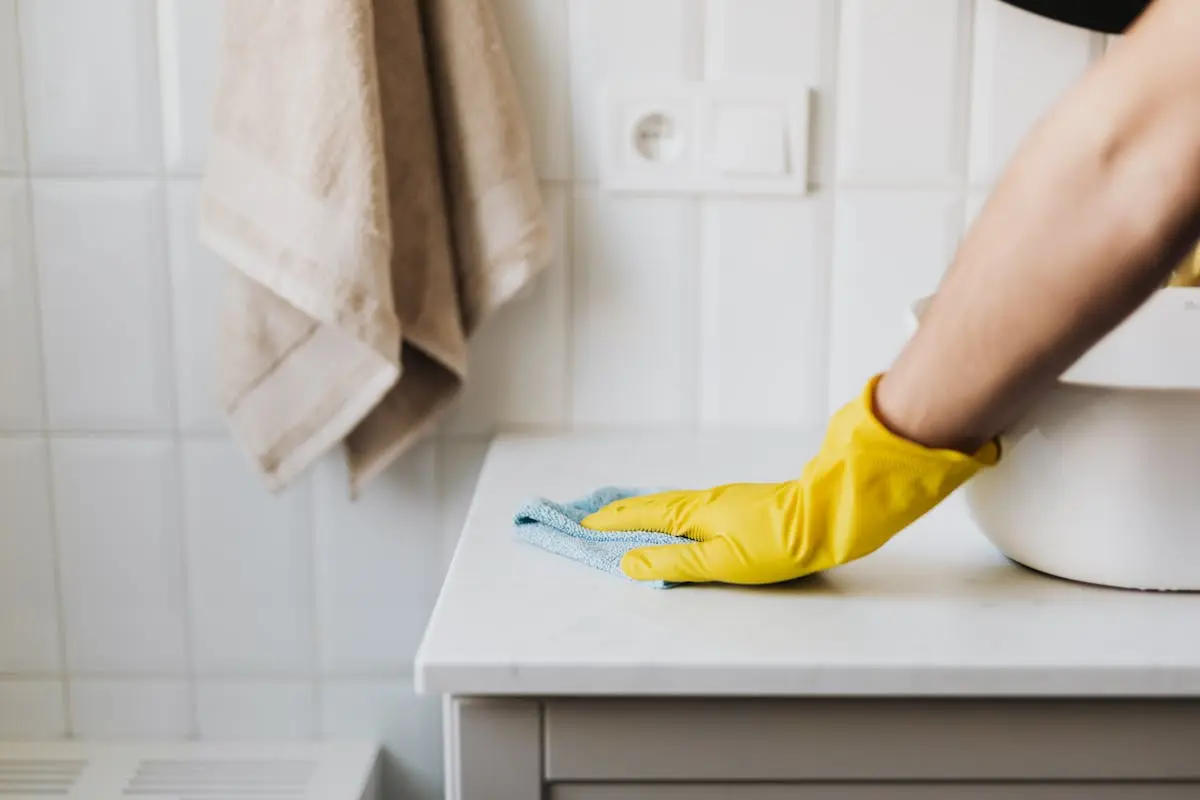Michigan winters can be harsh, with frigid temperatures and high humidity. This cold season can particularly impact your home, including your beloved countertops. Protecting them from these wintery conditions is essential to ensure their longevity and maintain their beauty. Here are some simple and effective ways to safeguard your countertops during even the chilliest Michigan months.
1. Clean Regularly and Thoroughly
Frequent cleaning prevents the buildup of grime and moisture that can come with winter weather. Use a gentle cleaner and a soft cloth to wipe down your countertops daily or after each use. This keeps them looking fresh and prevents damage from moisture accumulation. In environments with high humidity, such as Michigan, maintaining a clean surface is crucial to avoiding long-term issues. Keeping your countertops spotless not only enhances their visual appeal but also ensures their functionality.
Focus on cleaning the edges and corners of your countertops, which often get neglected. These areas can trap dust and moisture, leading to potential damage. Thorough attention during cleaning sessions can be the key to protecting your investment in these beautiful surfaces.
2. Seal Natural Stone Surfaces
Natural stone countertops like granite or marble are porous and can absorb moisture. Applying a quality sealant before winter helps create a barrier that prevents water and stains. Make it a routine to seal these surfaces at least once a year for added protection. According to CIT Granite, sealing prevents potential damage such as cracking from the freeze-thaw cycles characteristic of Michigan winters.
Sealing your countertops is a relatively simple process but can make a significant difference in their longevity. Opt for products specifically designed for your type of stone to ensure maximum efficacy. Don’t forget to test your sealant’s effectiveness occasionally by sprinkling a few drops of water on the surface; if it beads up instead of soaking in, your sealant is still in good shape.
3. Use Protective Mats and Trivets
Placing mats or trivets beneath hot pots and pans helps to shield your countertops from thermal shock, which can crack or discolor certain materials. In the winter, when comfort food recipes are in full swing, extra precautions like this can keep your surfaces safe. Stone Specialists note that rapid temperature changes can exacerbate existing weaknesses in the stone, making heat protection essential.
It’s a good idea to invest in stylish trivets and mats that complement your kitchen’s aesthetic while providing necessary protection. Consider materials like silicone or cork for their heat-resistant properties.
4. Manage Humidity Levels
Wintertime often means higher indoor humidity due to heating systems. Use dehumidifiers or ensure proper ventilation to keep levels in check. This minimizes the risk of mold and preserves the integrity of the materials. Keeping a balanced indoor climate can significantly extend the life of your countertops. Christoff and Sons emphasize that proper humidity levels prevent stone surfaces from becoming brittle.
If a dehumidifier isn’t an option, simple practices like cracking windows or using exhaust fans can be effective alternatives. In particularly damp areas, such as kitchens, managing excess moisture will also protect your cabinetry and other sensitive surfaces.
5. Avoid Harsh Chemicals and Tools
Chemicals like bleach or abrasive cleaning tools can damage countertops, particularly in combination with winter conditions. Stick to mild detergents and non-abrasive sponges or cloths to prevent unwanted wear and tear. Harsh chemicals can erode sealants and lead to discoloration, compromising the countertop’s protective layer.
Consider using homemade cleaning mixtures like baking soda and water for tougher stains. This combination offers gentle yet effective cleaning without the risk of damage. For long-term care, it’s beneficial to regularly update your cleaning supplies to ensure they’re suitable for your countertop’s material.
6. Tackle Stains Promptly
The sooner you address a spill, the less likely it is to leave a lasting mark. Blot liquids instead of wiping to prevent spreading, and use appropriate cleaners based on the countertop material to lift stains effectively. According to the experts at Houzz, implementing quick action techniques can save you from extensive stain removal efforts later.
For stubborn stains, create a poultice with baking soda and water, applying it to the affected area and letting it sit before gently wiping it clean. This method is both environmentally friendly and gentle on your surfaces, making it an excellent option for more stubborn spotting.


